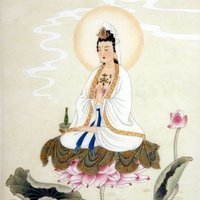Search the Community
Showing results for 'Dream'.
Found 30 results
-
Alexander Blok - 1899 ______________________________ To where Heaven joins the Ocean, In one uncertain, drifting seam— Beyond the veils of distant mists My spirit carries its true dream… [Verse] Yet still I know — toward that pale boundary It is my inner quest that flows; With Heaven’s clear and silent Vastness My single soul in oneness grows… [Chorus] Ah, if you, Eternal Weaver Of Heaven’s Way and all that lives, Would grant a wonder to your children And bestow immortal wings to mortals’ striving selves!
-
Maybe, but there are some classes of divination that don’t fit that pattern. Trance oracles, ecstatic prophecy, and temple dream oracles deliver long, open answers rather than yes/no verdicts. Full horoscopic astrology also doesn’t collapse into a binary outcome, since it builds a whole scenario by combining many factors. Text-lots that point to long oracle passages work similarly. Even in augury and extispicy, the raw signs aren't binary. Bird behavior and liver marks are open-ended, and the priestly tradition compresses those signs into a paired verdict for state use. Strictly talking about what survives in writing, the earliest divination we see in detail is binary, closed, and coded Mesopotamian liver omens, star omens, and then Shang cracks and later Yijing-style procedures. Those are some of the first known systems where we have tablets, models, and line-by-line rules. But if we're talking about human practice rather than written record, open-ended interpretation likely comes first. People were reading weather, birds, animal behavior, strange births, and dreams long before anybody made a clay liver model or wrote a huge omen series. I agree, and I'm not arguing for or against the connection to Proto-Indo-European influence. I'm just outlining historical timelines for context, placing the both the PIE Influence study and the Roman Legion article into their respective time periods, as well as providing scholarship that shows the Yijing is, at a minimum, rooted in and an evolution of a Shang dynasty oracle system, not a Warring Era creation. The Bronze Age divination methods are also for context, to see how other cultures developed divinatory systems, and to see what patterns can be observed or interpreted.
-
A Dialogue Between Carlos Castaneda and Master Sosan Carlos: I came for knowledge. Don Juan would say it isn’t given for free — but I’ve heard that your teaching is different. You speak of the Oneness of all things… but how do you feel it in action, not just talk about it? Master Sosan: You seek what you already have. As long as you look outward, you pass by the door. You can enter only by leaving the search. Carlos: Leave the search? But the warrior’s path is continuous effort: stalking, not-doing, impeccability… If I stop searching — wouldn’t that be the death of spirit? Sosan: When the search ends, seeing begins. Effort is useful to sharpen attention, but useless when you’re already at the destination. You hold a mirror in your hands, yet you ask for directions to your own reflection. Carlos: But the world is opaque. It pushes me in different directions. Energies, intent, the shadow of the human form… it’s all so complicated. Sosan: Complication is what the mind creates to feel necessary. In reality there is neither simple nor complex — only what is happening. And it doesn’t resist you, unless you clash with it head-on. Carlos: Don Juan would say you speak like someone who has lost the sense of importance of his personal story. Sosan (smiling): A story is a dream. But you can sleep consciously or unconsciously. The difference lies in a single thought: “this is mine.” Carlos: But what about the path? What about intent? Without it, we lose direction. Sosan: Direction exists only when there is someone who walks. But when Being itself is walking — where could it possibly go? You want to control the wind, but the wind is already blowing. Stop trying to point its way — and you will become its movement. Carlos: What you’re saying… sounds like not-doing, but distilled to its very essence. Sosan: Not-doing is just another name for naturalness. You try to “not do,” yet even that becomes doing. I say: stop clinging. Then everything will be done through you. Carlos: You claim there is no path and no walker. Then why are we talking? Sosan: To hear the silence between the words. Once you hear it — the conversation becomes unnecessary. Carlos: Still… how will I know that I’ve understood? Sosan: When you stop asking. Understanding is not an answer — it’s the disappearance of the need for an answer. Carlos: So… everything I’ve studied, all the techniques, all the experiences — they’re just ripples on the water? Sosan: Ripples do not prevent the water from being water. Your practices do not prevent Truth from being Truth. But stop calling the ripples deep and important — and then you will see the water itself. Carlos (after a pause): I see… but I can’t say I understand. Sosan: Then that is the first real step.
-
There's very little truth in what the public has been led to believe about what's healthy. Also about what it is we're actually eating, drinking and smoking -- a lot of it is grossly falsified, depleted, and poisoned. "Feed the ancestors," meaning the ancestral make-up of your own body, which is one of the taoist culinary principles, can IMO serve one better -- try eating what generations of your ancestors ate before you, not the latest fad. Although a lot of our ancestors were starving, not fasting by choice but starving due to poverty and social upheavals and endless wars. Yet those of them who were well-to-do enough to eat "healthy" had access to the kinds and varieties of food we can only dream about. (My grandmother on my mother's side used to tell me what was eaten in her mother's home in the early 20th century and all I could do was salivate. On my father's side, however, the ancestors were very poor and lived through periods of starvation. My mother's side of the family were the longevity folks, not my father's side.)
-
and the reverse ..... me coaxing a chainsaw to start and run perfectly after everyone else could not .... and swore and cursed at it . I step in and '' Do you want me to do it for you ?'' amidst much eye raising and huffing , but not from my Indigenous teacher , he was laughing and - knowing me ' ' here we go ! ( meaning he is used to my 'antics' ) .... < pat pat > ''Awwwww ... poor little chainsaw, everyone being mean and abusing you, but I won;t I like you ! Good little chainsaw < pat pat > You will start for me won;t you . '' and the others are ''Fer Gawd's sake ... etc '' .... went first pull and ran like a dream







